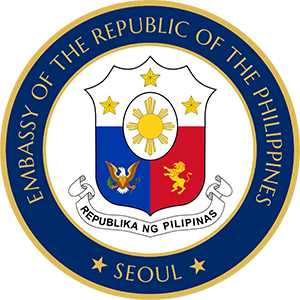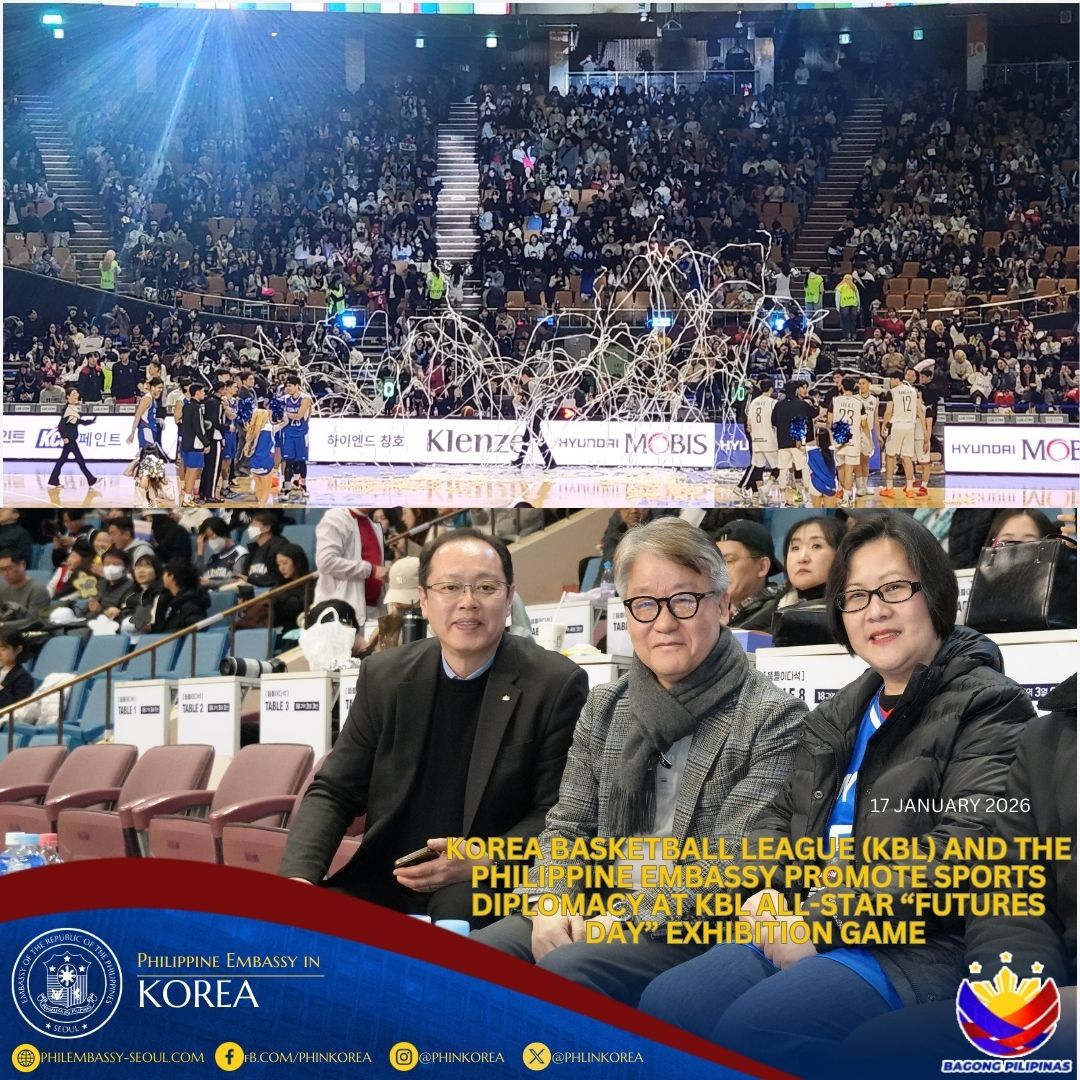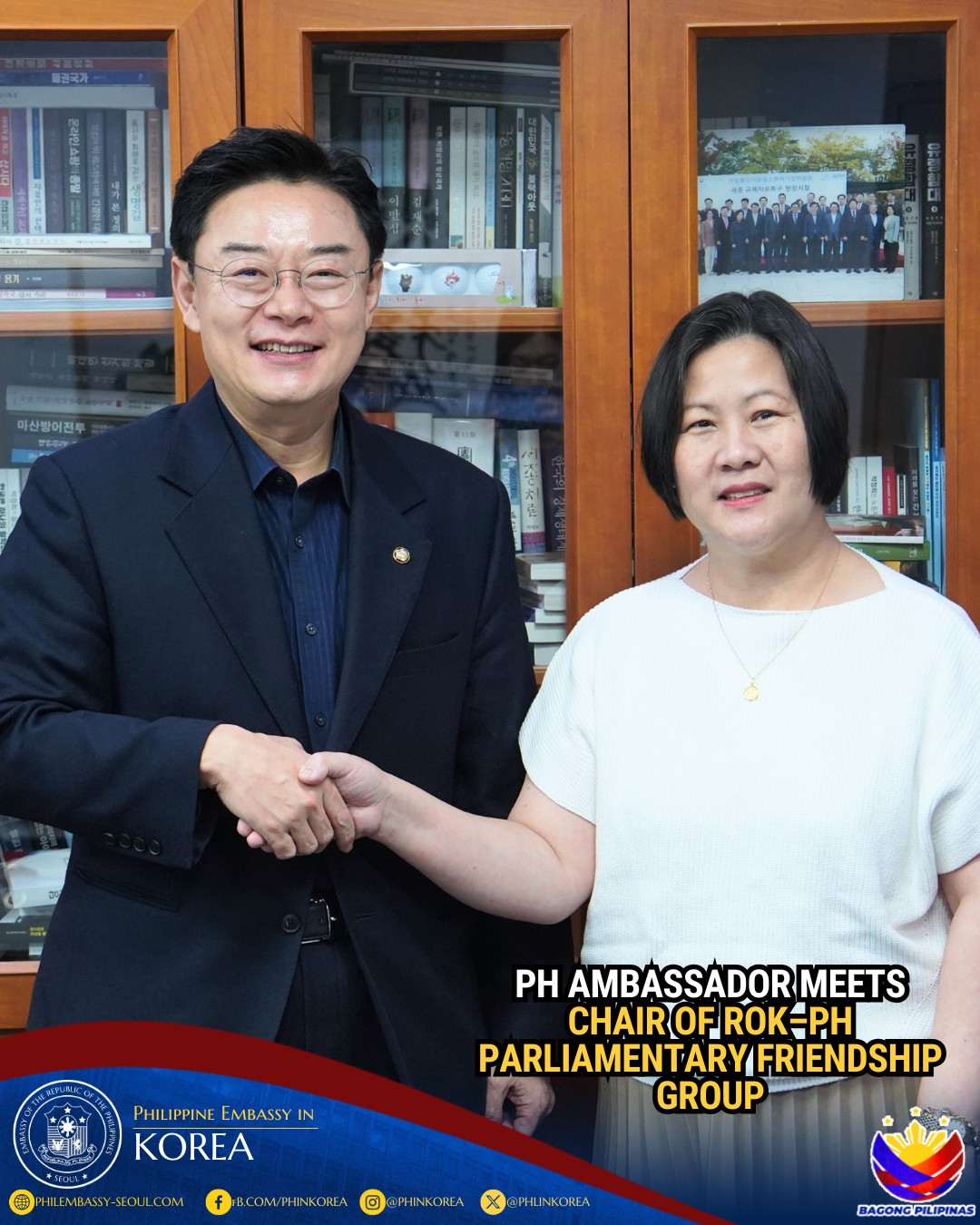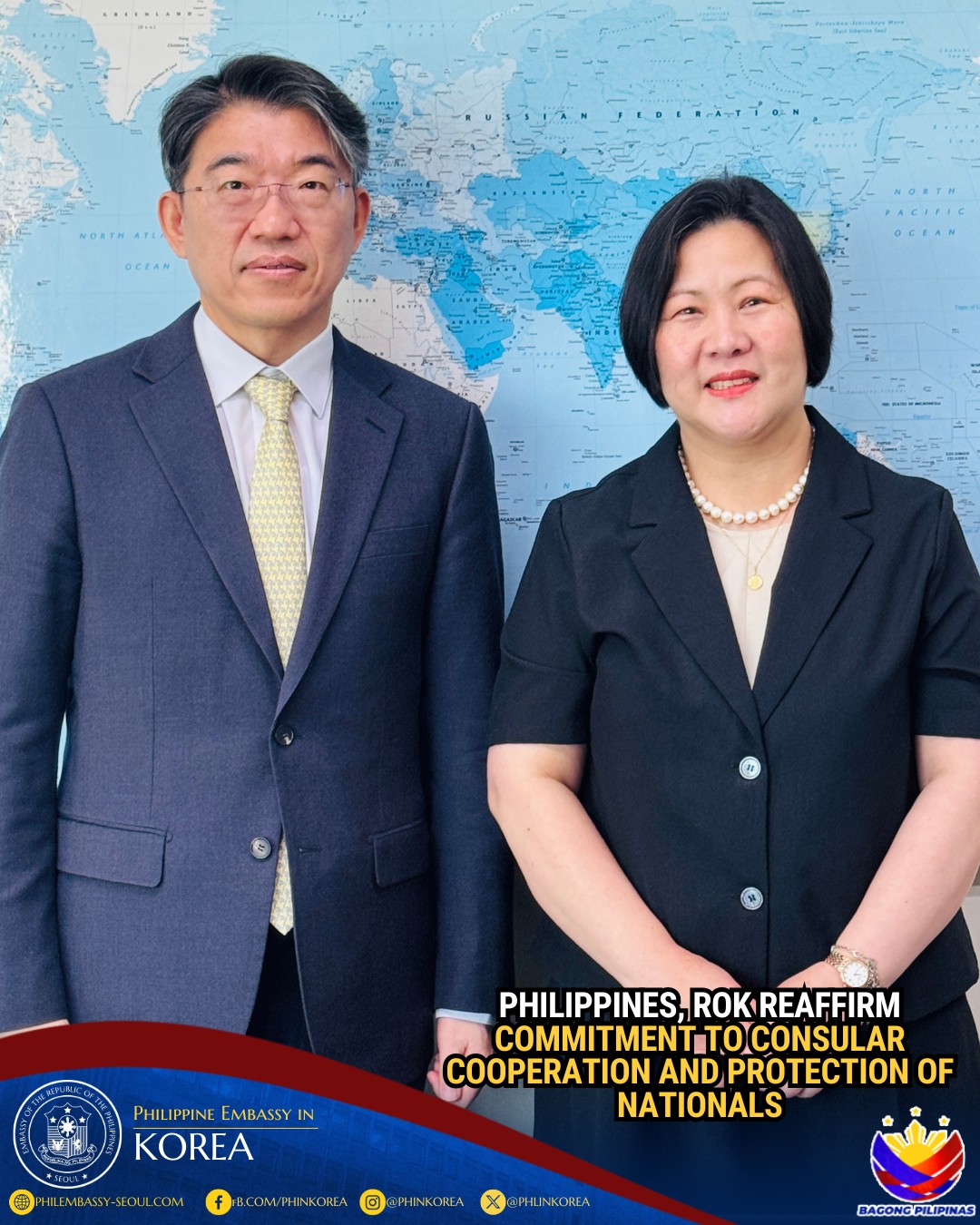Filipino Scholars in Korea Quadruple in Five Years
Seoul, 17 July 2010 – Philippine Ambassador to South Korea Luis T. Cruz reported that the growing community of Filipino students here, which has seen a four-fold increase since 2005, is making an impact on both academic and social landscapes as they gain prominence in schools for their cultural and scholarly contributions.
The number of Filipino students in South Korea has quadrupled from 108 in June 2005 to approximately 400 this year, according to data from the Korean Immigration Service. For instance, the Catholic University of Korea alone has accepted around 50 Filipino students pursuing higher education since it launched an international program in 2009.Majority of the students here are beneficiaries of both short-term and long-term international scholarship programs who belong to diverse fields such as international relations, business and the sciences.
In 2005, a group of less than ten students from the Seoul National University started a group called Pinoy Iskolars in Korea, or PIKO, to provide a support system and serve as a forum for its members. Today, PIKO has a membership of more than 100 students from different schools and provinces throughout South Korea.
These students are often tapped to take part in multicultural activities as Korean schools intensify their push for global curriculums and encourage the entry of foreign students.
“Naiimbitahan ang mga estudyante para magsalita tungkol sa Pilipinas,†said Ms. Regina Arquiza, a student from the Ehwa Womans University who has served as the president of PIKO for two years. She added that Filipino students were often called upon to take part in cultural festivals where they play Filipino music, perform traditional dances and prepare Filipino food.
While actively participating in embassy-initiated activities, PIKO is also able to provide invaluable networking opportunities for its members. “Kapag may kailangan, nagtutulungan kami, lalo na yung mga seniors,†stated Ms. Arquiza. The group likewise offers information on available scholarship programs for other people interested in studying in South Korea.
A common challenge faced by the students is the language barrier. “Isang criticism sa mga Pilipino ay hindi daw tayo kasing-galing ng mga Japanese o Chinese sa Korean,†she explained, adding that they make up for it by establishing a reputation for being adept in English.
Nevertheless, the Korean academic system helps students further develop discipline and dedication. “You have no choice but to be competitive,†Arquiza claimed, praising the Korean students’ propensity for hard work and skillful time management. “Pagbalik ng estudyante sa Pilipinas, dala-dala iyon,†she said.
Several schools offer competitive scholarship programs on a regular basis and in varying fields. For example, the Korea Advanced Institute for Science and Technology has a continuing program dedicated for graduate studies in finance for government employees.
The Philippine Embassy advises interested applicants to periodically visit the websites of Korean schools to check for announcements and the detailed eligibility and documentary requirements. Some schools accept online applications.
Apart from the students, the Philippine Embassy also works closely with Korea-based Filipino educators, many of whom are on short-term faculty exchange programs. The Resource Persons Group, an association of Filipino professors in South Korea, has undertaken several activities that included the publication of a weekly column in a Korean newspaper. They also give important policy inputs to the Philippine Embassy.
“People-to-people exchange between the Philippines and South Korea is continuously expanding,†said Amb. Cruz. “South Korea is our top source of foreign students, retirees and tourists. It is no wonder that mutual awareness between our peoples is high. This knowledge has naturally led to situations that allow the transfer of ideas and sharing of experiences in both the school setting and beyond,†he said.
“It is my hope that our students, once they complete their study here, are able to return to the Philippines and apply the skills and knowledge they would have acquired from a country like South Korea—a country that has become a cultural hub and an economic powerhouse in a span of only one generation,†he added.



 January 21, 2026
January 21, 2026
 January 13, 2026
January 13, 2026
 January 12, 2026
January 12, 2026
